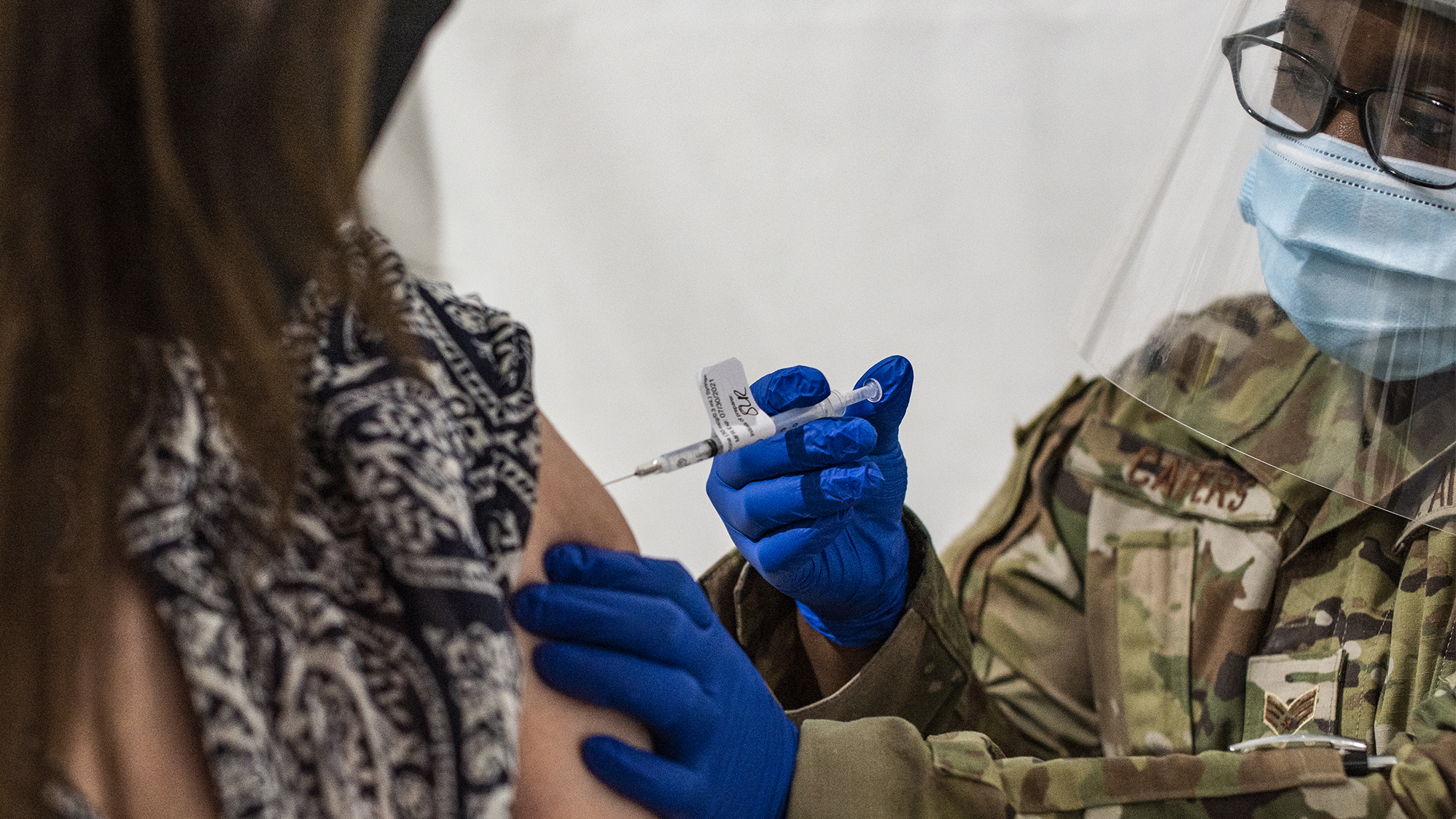As more and more Marylanders are getting vaccinated against the coronavirus, students at the University of Maryland are using the Vaccine Information Distribution Student Task Force to aid in spreading credible information, answer questions and address hesitations about the vaccines.
The idea behind the student force came from a December Pew Research Center study that found three-quarters of adults ages 65 and older said they would definitely or probably get vaccinated, compared with only 55 percent of those under 30 years old.
“We really wanted to target this and get more students interested in taking the vaccine [and] help change attitudes toward it,” said Shoham Ghosh, one of the co-founders of the task force, which was launched in February.
The reluctance from younger generations to get vaccinated is also linked to their lack of concern about getting a serious case of the disease, with 57 percent of participants aged 18-29 indicating they are not too concerned or not concerned at all about contracting the coronavirus and getting hospitalized for it, according to the same study.
Umailla Fatima, a junior physiology and neurobiology and public policy major, has seen hesitancy toward the vaccine in her own life from some family members and some of her best friends.
Fatima’s friend told her she didn’t want to get a vaccine because she felt that the vaccines were developed too quickly, but Fatima explained the process was accelerated because of the lack of bureaucratic and financial barriers.
Ghosh said the task force intends to expand its reach and target specific populations that “experience the most vaccine hesitancy on campus and in the community.”
[Prince George’s County Memorial Library System launched a COVID-19 vaccine hotline]
After analyzing the study, the Vaccine Distribution Task Force decided it would be more credible if students were the ones spreading information to one another.
“I personally tend to have more productive conversations when it’s with my friends, when we’re talking about something, rather than getting a university-sponsored email,” said Natalie Kelley, a co-founder of the student task force and a senior physiology and neurobiology major. “The beauty of our organization is that we’re a student organization, student-run, student-led. This is all Shoham and I working on this as the leadership of this group.”
The task force started an Instagram account, @covidstf.umd, run by student volunteers who make and repost content. Sydney Sobkowiak, a sophomore communication major, creates content for the account that’s easy to understand and credibly sourced.
Joshua Steighner, one of the account’s followers, appreciates how the posts aren’t trying to convince people to get the vaccine, but simply trying to spread credible information.
“I know of people who have loved ones who are vaccine hesitant or otherwise doubtful. It’s really helpful to have very straightforward ways to explain it in a non-judgmental way,” said Steighner, a senior criminology and criminal justice and general biology major.
Jon Bakly, a task force volunteer and senior cell biology and genetics major, said the group has received an overwhelmingly positive response from students.
“We get feedback on our posts and we get comments … about how useful the information is or what we can improve on and things like that, and we take it all with positivity and improving the organization itself,” he said.
Fatima, who also follows the account, echoed Bakly’s thoughts, noting that the group should also focus on asking organizations that aren’t already pro-vaccine to spread their content further.
“That’s how social media works,” she said. “If your followers are all these health-oriented people who know this information and are not hesitant about the vaccine, then you can’t really address the issue as well.”
[UMD opens COVID-19 vaccine appointments to all faculty, students and staff]
Bakly also expressed the importance of having discussions with people who disagree with getting vaccinated.
“It’s important to hear people out and see where they come from,” he said. “We don’t have to agree on things, but I think at the end of the day, we can all have an important, educational discussion.”
Ghosh says the posts are intended to combat misinformation and answer questions about how the vaccines got developed so quickly, the differences between the three vaccines approved in the U.S., whether a mask is necessary after getting vaccinated and more. The posts include testing resources and scientifically proven research.
Kelley and Ghosh say they’d consider the task force successful if it just changes one person’s mind or gives one person new information they hadn’t seen before.
Ghosh said their Instagram is unique to others spreading similar information because they are posting student testimonials about receiving the vaccine to make the information feel more personal to the university’s community.
“Instead of just always connecting it to hard facts,” he said, “we are connecting it to student stories.”



